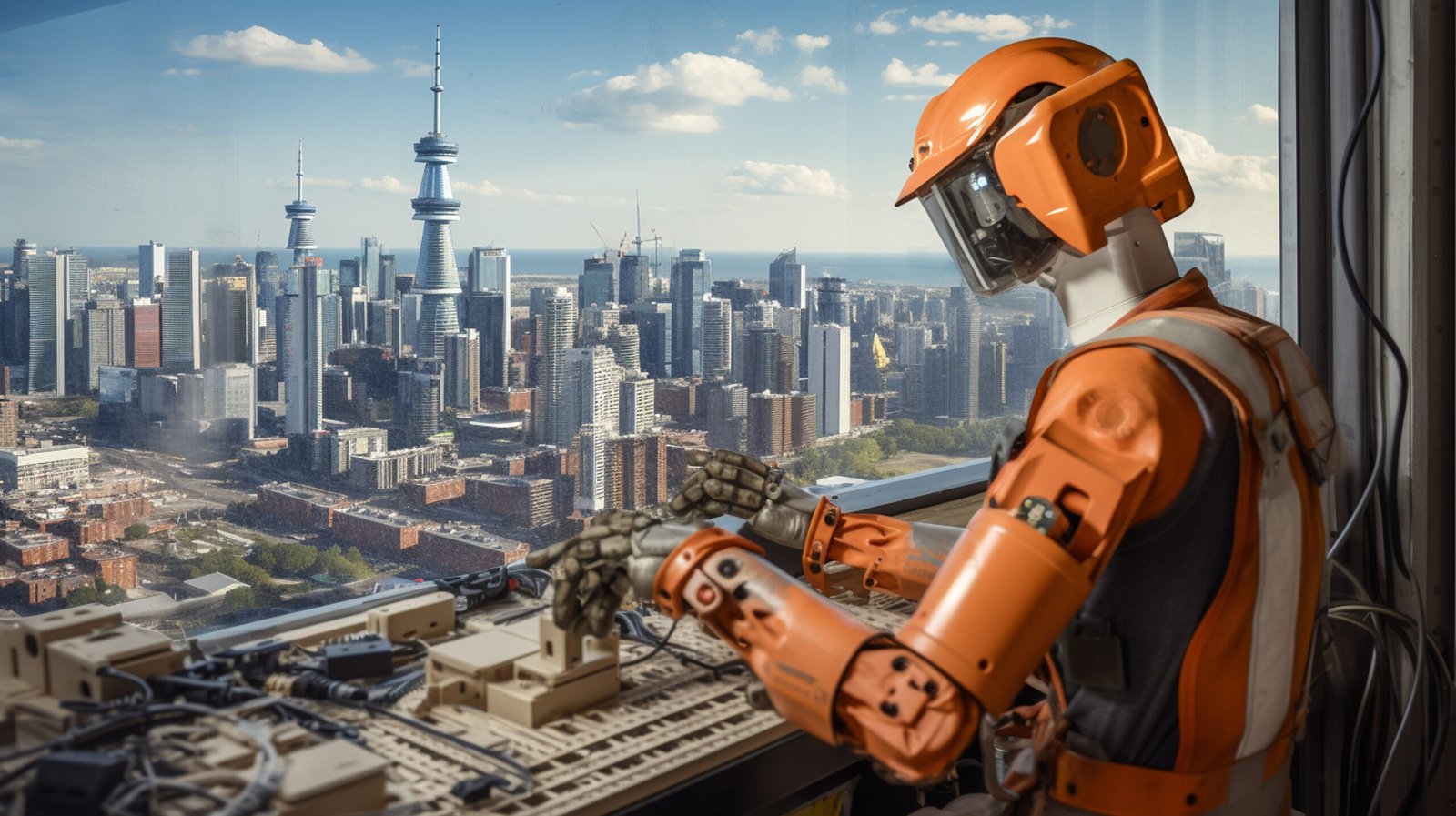Introduction
Background: Integration of AI and analytics in the area of civil engineering is revolutionizing processes—from design to construction, as well as maintenance—thereby improving safety, sustainability, and efficiency.
Thesis Statement: The application of AI combined with analytics in civil engineering is transforming predictive maintenance, smart cities, sustainability, design potentials, and construction automation, thereby setting new standards in infrastructure development.
Scope and Purpose: In this review, we critically investigate the role of AI and big data analytics in civil engineering, examining predictive maintenance, smart cities, sustainability, design, and automation for future infrastructure improvements.
Findings & Analysis
Automation in Construction
Findings: Solutions (2024) describes how AI and analytics in construction automation accelerate workflows, improve precision, and minimize labor costs through predictive tools, robotic systems, and autonomous vehicles.
Analysis: Artificial intelligence and business analytics transform project competency through autonomous and robotic technologies. Prediction tools help anticipate delays, supporting timelines and avoiding unnecessary expenses. Combined with big data analytics, construction sites achieve higher efficiency and performance, contributing to adaptive and intelligent smart infrastructure. (Abu Dabous et al., 2023).
Improved Design Potentials through AI
Findings: Neuralconcept (2024) explains how AI optimizes civil engineering design by analyzing data, forecasting risks, and generating several design alternatives to improve project outcomes.
Analysis: AI, powered by marketing analytics techniques and predictive modeling, alters civil engineering design by simulating structural behavior and analyzing large datasets. Engineers benefit from reduced human error, faster decision-making, and better design resilience. AI tools suggest multiple design alternatives considering durability, cost, and sustainability. (Bhuva & Damdoo, 2023).
AI in Sustainable Civil Engineering Practices
Findings: Admin (2024) highlights how AI and data analyst tools supervise carbon emissions, optimize resource consumption, reduce waste, and maintain sustainable practices during construction.
Analysis: AI and big data analytics enhance sustainability by monitoring environmental impacts, controlling carbon levels, and reducing energy use. Predictive systems can advise existing structures, optimizing development characteristics. With analytics-driven insights, civil engineers can design efficient, eco-friendly structures that address the growing call for sustainable construction. (Sargiotis, 2024).
Smart Cities and Infrastructure Optimization
Findings: CWRU (2019) describes how AI and analytics improve smart city infrastructure by enhancing sustainability, optimizing energy consumption, and managing traffic through real-time data.
Analysis: Artificial intelligence, combined with business analytics, transforms urban management. Real-time big data analytics minimizes congestion, optimizes road usage, and improves traffic management. Within smart buildings, AI adjusts systems like heating, cooling, and lighting to optimize energy consumption, creating adaptive urban environments that improve residents’ quality of life while reducing environmental footprints (Wolniak & Stecuła, 2024).
Predictive Maintenance for Infrastructure Durability
Findings: Castellaw (2024) shows how AI-powered sensors and analytics aid predictive maintenance by preventing catastrophic failures, identifying vulnerabilities, and monitoring infrastructure health.
Analysis: Predictive maintenance, powered by AI and big data analytics, extends infrastructure lifespan by monitoring real-time conditions. Engineers can detect early damage or wear, enabling timely interventions. This proactive, analytics-driven approach reduces emergency repairs, cuts costs, and enhances public safety (Salam et al., 2024).
Conclusion
Summary of Key Findings: AI and analytics improve construction automation, smart cities, sustainability, design, and predictive maintenance, thereby revolutionizing civil engineering practices.
Evaluation of Current State of Research: Studies highlight the transformative impact of AI and business analytics, though application methods are still evolving.
Identification of Gaps: Further study is required to understand the full potential of AI-human collaboration in complex infrastructure scenarios.
Implications for Future Research: Future research should refine the integration of AI and analytics in civil engineering to maximize innovation, sustainability, and safety while leveraging data analyst expertise and big data analytics tools.
Reference List
- Abu Dabous, S., Rashidi, M., Zhu, Z., Alzraiee, H., Mantha, B., & Alsharqawi, M. (2023). Automation and artificial intelligence in construction and management of civil infrastructure. Frontiers in Built Environment, 9, 1155240.[artificial intelligence construction]
- (2024, August 26). How AI is transforming sustainable civil engineering. Eyowhite. [AI ,sustainable ,civil engineering]
- Bhuva, A., & Damdoo, K. (2023). AI and civil engineering. International Journal of Research Publication and Reviews, 4, 1051-1056. [ AI, civil engineering]
- Castellaw, C. (2024, August 22). Predictive maintenance in construction: Key considerations. LLumin. [Predictive, maintenance]
- (2019, March 27). Building smart cities and infrastructure. Online Engineering. [smart cities and infrastructure]
- (2024, May 27). AI in civil engineering: Applications & advancements. Neuralconcept. [ AI, civil engineering]
- Salam, A., Khan, A., Khan, M., Ansari, Y., Murtaza, G., Dera, I., & Khan, M. (2024). AI revolutionizing post-construction: Advancing maintenance, monitoring, and predictive analytics for prolonged infrastructure lifespan. International Journal of Construction and Infrastructure. [maintenance ,monitoring, infrastructure]
- Sargiotis, D. (2024). Advancing civil engineering with AI and machine learning: From structural health to sustainable development. International Journal of Architecture and Planning, 4, 12-34. [AI, civil engineering, sustainable development]
- Solutions, S. O. H. O. (2024, October 8). What is automation in construction? A complete guide in 2024. Flowforma. [automation, construction]
- Wolniak, R., & Stecuła, K. (2024). Artificial intelligence in smart cities—Applications, barriers, and future directions: A review. Smart Cities, 7, 1346-1389. [Artificial intelligence, smart cities]







